The Huawei Mate 30 is closer to the Pro model than
perhaps any previous Mate before it. Its screen, an OLED panel, is actually
slightly larger at 6.62” and nearly as sharp, considering the 1,080 x 2,340px
resolution. It supports HDR10 and DCI-P3, just like hte Pro. The screen is flat and with a
smaller notch (the 3D sensor is different). Note that both Mates have
in-display fingerprint readers.
The rear camera keeps the massive 1/1.7" 40MP
sensor with RYYB color filter and f/1.8 aperture. The 8MP telephoto camera with
3x optical and 5x hybrid zoom is also on board, both cameras have OIS. However,
the ultrawide camera drops down to a 16MP sensor (f/2.2) and the selfie cam has
a 24MP sensor.
The phone is still powered by a Kirin 990 chipset
and comes in both 4G and 5G versions. Note that these use two different
versions of the chip - the 4G one is built on a 7nm process and the medium
cores are clocked slightly lower. Also, the NPU has only one big core instead
of two.
The battery gets both the 27W wireless and 40W wired
charging support, unlike last year’s model which was majorly downgraded
compared to the Pro (no wireless and slower wired). The battery capacity is
4,200mAh. The Mate 30 is rated at IP53 (splash proof).
The Huawei Mate 30 will become available in China
today and globally in October at a price of € 800. It has 8GB of RAM too,
however the storage has been halved to 128GB (you can still expand it with an
NM card). Huawei Mobile Services are fully open source and will provide the
basic functionality that was handled by Google Play Services so far. The
company has created a $1 billion investment fund to support and grow the
project. Users will be able to download software from Huawei's AppGallery,
which already has 390 million monthly active users and served 180 billion
downloads last year.
This is more than an app store, however. Huawei ID
will serve as your main account to access a whole ecosystem. Huawei Mobile
Cloud takes over from Google Photos and Drive, it lets you sync photos as well
as back up data and settings from your phone. Huawei Video is a streaming
service with films, TV shows and documentaries (currently available only in
Italy and Spain). Huawei is even pushing its own browser ahead of Google's
Chrome.





